Results are in for the second Northern Grassfed Carcass Competition
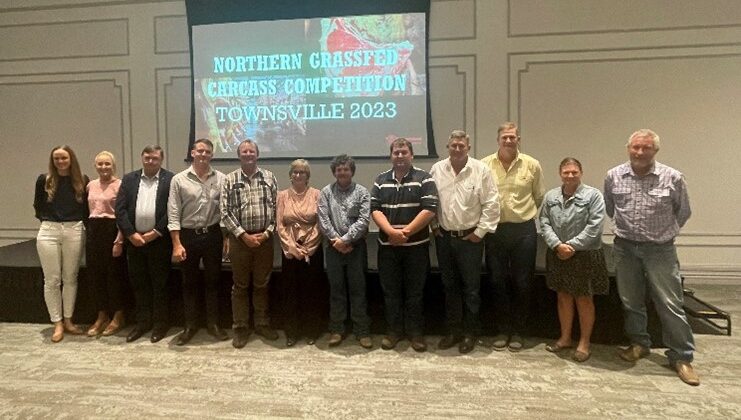
North Queensland beef producers recently went beyond skin deep when they entered cattle in the Northern Grassfed Carcass Competition at JBS Townsville. This year saw 14 vendors, twice as many as the year before, enter a pen of three grassfed heifers or steers. Cattle came from as far as the Atherton Tablelands, Hughenden and south of the Burdekin, with a good representation of breeds entered.
Competition specifications
The competition specifications followed those from the Beef Australia 2024 National Carcass Comp Specifications, giving entrants the opportunity to also nominate for that competition. These were:
- pen of three steers or heifers
- carcass weight 280–340 kg
- rib fat 5–9mm
- P8 fat 8–14mm
- meat colour 1B–4
- fat colour <5
- pH <5.71.
Fifty-five points were available for the MSA index, 35 for lean meat yield and 10 for hitting the market specifications. All carcasses where MSA graded, which provided valuable carcass feedback to the producers, as this depth of feedback isn’t usually available at JBS Townsville.
There were nine pens of steers entered, with an average carcass weight of 329kg, and five pens of heifers that averaged 282kg. Eighty per cent of carcasses met MSA requirements and received a MSA index, with three carcasses receiving indexes in top 25% of Queensland.
The winning entries of the Northern Grassfed Carcass Competition
The winning pen for the 2023 competition was a pen of Braford steers, coming from Theo and Jenny Watson at Broadford Downs, Hughenden. They had an average carcass weight of 302kg, 56% lean meat yield, and an MSA index of 59.5.
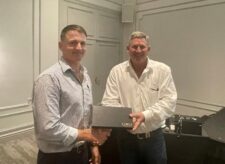 | 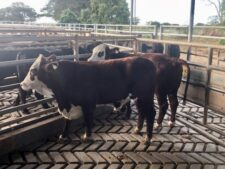 |
| Left: Aaron Adcock, JBS Livestock Buyer on behalf of Broadford Downs, with Simon Fraser, JBS Townsville Livestock Manager | Right: The winning pen containing three Braford steers, provided by Theo & Jenny Watson of Broadford Downs, Hughenden. |
Second place, for the second year running, was a pen of Droughtmaster heifers from the Rae family at Lisgar Station, Home Hill. They had an average carcass weight of 316kg, 56% lean meat yield, and an MSA index of 56.94.
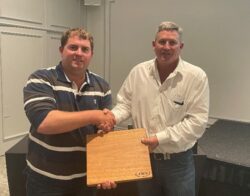 | 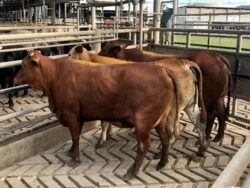 |
| Left: Second placegetter, Robert Rae, representing the Rae family of Lisgar Station, Home Hill with Simon Fraser | Right: Lisgar Station's Droughtmaster heifers had an average carcass weight of 316 kg |
There was also a prize for the pen with highest average MSA index. This came from Jim and Robyn Beattie at Yungaburra on the Atherton Tablelands, with their pen of Brangus steers having an average MSA index of 60.47.
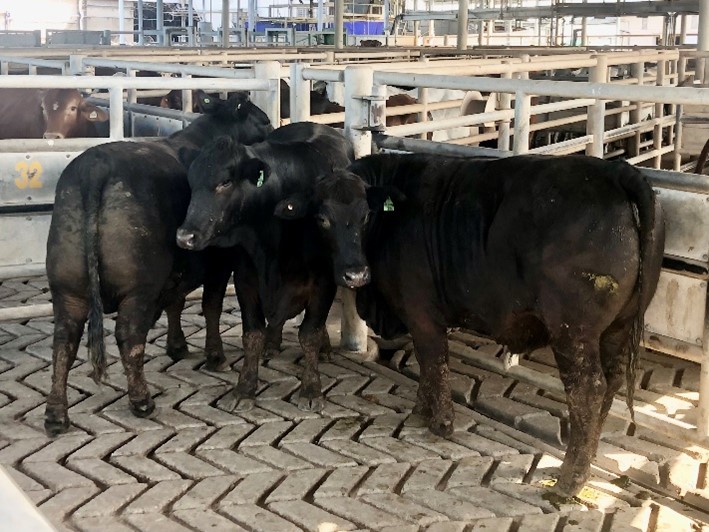
Putting taste to the test
At the presentation dinner at Rydges in Townsville, attendees participated in a blind taste test, where the five different breeds entered into the comp were put to the test, and judged on their taste, texture and flavour. As voted on the night, the best beef was from a Brangus, with the Droughtmaster a close second.
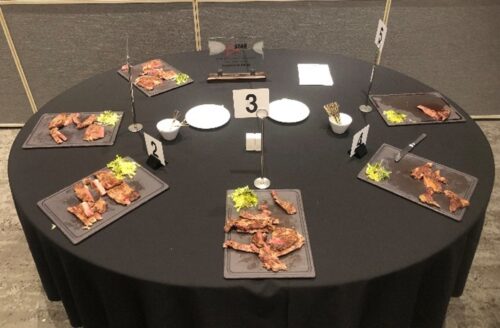
In summary, all breeds performed well, with Braford, Droughtmaster, Brangus and Brahman breeds represented in the top four scoring pens for the 2023 competition. The combination of genetics and management both ultimately affect the quality of the beef you produce, that will end up on someone’s plate one day.
Using the carcass feedback data
Staff from Department of Agriculture and Fisheries analysed and presented the carcass feedback for the competition. Whilst they were many standout individual carcasses, the vendors that had a pen of three consistent carcasses were the ones to come out on top. Moreover, this relates back to what you want in the paddock, not one great animal, but a paddock full of them.
Undoubtedly, the best result from participating in any carcass competition, is the depth of carcass feedback you receive, and the opportunity to see how your beef compares to others in the region. This then provides a perfect opportunity to identify any potential areas for improvement, from bull selection to nutritional management decisions. If you are interested in receiving some detailed carcass feedback, and identifying ways to improve your beef, why not consider entering a local carcass competition. Or if you have pages of old carcass data sitting in a draw that you’ve never quite understood, contact your local beef extension officer, who will be able to help you use this valuable data in your business.
Related information
How carcasses are MSA graded (MLA) →
Becoming a MSA certified beef producer (MLA) →
What Meat Standards Australia grading means for the end product →